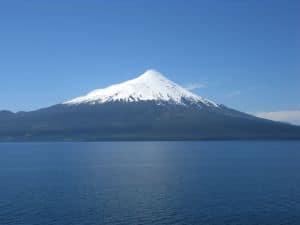
It has a low cost of living compared to the US as you will soon see. There is much to offer to the adventurous baby boomer. Let us take a quick look at what makes retiring in Chile so attractive.
Lots of house for the money
One California couple who retired to Chile said that its real estate market felt very much like that of the California market in their youth, in other words you can get a good deal of house for the money. This is just one of several reasons why Chile offers great value and a near-first world lifestyle for less than what you would pay in Europe or North America.
Most of the basic goods in Chile such as groceries and some household expenses will cost about the same, as you would pay in the US. For example, eating out in a decent restaurant in the city of La Serena will cost from $20-$25 US per person, including wine. However, medical care costs are less than in the US. You can get a doctor’s visit for $60-$80 but health insurance is scarce.
The cost of living well in Chile
If you want to live well in Chile, you’ll need about $4000-$5000 a month or a total of $48,000-$60,000 a year. The good news is that living well can include taxes, homeowners Association fees, golf club dues, classes in Spanish, car insurance, utilities and even a maid. Internet/TV/cable/telephone service runs about $130 a month.
Chile is the leading Latin-American economy and has a lower severe poverty rate than the US. It has a good educational system, a low unemployment rate and a very high literacy rate. English is now mandated in all of its schools.
A cheap place to live and retire in Chile
Chile’s capital, Santiago (or Santiago de Chile) is one of the world’s cheapest cities in which to live. You can buy a 3-course meal for two in a mid-range restaurant for about $40. A liter of milk generally costs $1.26 and a loaf of bread $1.05. Your monthly utilities of electricity, water, gas and garbage will be about $82 and Internet service $43.20 (for 6 Mbps, flat rate and cable/ADSL).
You should be able to rent a one-bedroom apartment in Santiago’s City Center for about $421 and a 3-bed apartment for roughly $760. If you choose to live outside of the City Center, a one-bedroom apartment will cost about $420 and 3 bedrooms about $817. As an alternative to renting, you could buy an apartment in the City Center for around $1650 per square meter.
State-of-the-art healthcare
There is even more good news if you are considering retiring to Chile. Healthcare there is very advanced and state-of-the-art. As an expat, you’ll want to buy private insurance. There are several health insurance companies in Chile and most of them offer plans that range from low-cost to full-service. To buy insurance in Chile, you will need a RUN (Rol Unico Nacional) card and a valid credit card. A RUN is basically a national ID number.
Unlike the US, Chile does not have a system of primary care doctors or local GPs. Instead its doctors tend to specialize. We might think of our family doctor as the person we would first turn to with a medical problem but this is not a concept that’s well known in Chile. However they do exist and you will need to get a referral from one of them to see a specialist.
A multitude of recreational and sports activities

Chile also has many mountain peaks for climbing, and water sports galore. You can swim, boat, whitewater raft, or water ski. You can have a nice relaxing time fishing as top-quality fishing is available in any of the lakes scattered throughout Chile although the best spots are in the Lake District and in Patagonia, which is in the southern part of the country. There is also great trout fishing in the lakes near Puerto Montt.
The net of it is that Chile is a country that offers wonderful forests, glaciers and rivers, along with a reasonable cost of living, making it a great destination country for retirees.
As you can quickly see there is much to do and much to enjoy living and retiring to Chile.
The next step is to plan a mini vacation or mini retirement to get a better feel of the place first hand.
This is truly the only way you will be able to decide if you enjoy the people, lifestyle and climate.
Learn more about traveling, living and possibly retiring in Chile:
http://wikitravel.org/en/Chile
http://travel.state.gov/travel/cis_pa_tw/cis/cis_1088.html
http://www.state.gov/r/pa/ei/bgn/1981.htm
http://www.lonelyplanet.com/chile
https://www.cia.gov/library/publications/the-world-factbook/geos/ci.html
